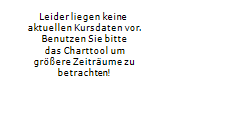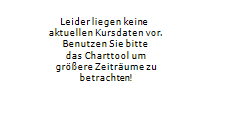
TORRANCE, Calif., July 12, 2024 /PRNewswire/ -- Emmaus Life Sciences, Inc. (OTCPK: EMMA), a commercial-stage biopharmaceutical company and leader in the treatment of sickle cell disease, today announced receiving the coveted "No Action Indicated" classification following a routine inspection by the United States Food and Drug Administration (FDA) of Emmaus' Postmarketing Adverse Drug Experience (PADE) compliance program.
The PADE program aims to shield patients from poor quality, unsafe, and ineffective dugs through proactive compliance strategies and risk-based enforcement actions. A major objective of the PADE program is to ensure that accurate, reliable, and timely safety data are submitted to the FDA in compliance with postmarking laws and regulations.
The two and a half-day inspection by two FDA Consumer Safety Officers found no objectional condition or practice in the six years that Endari has been marketed and thereby received a "No Action Indicated" (NAI) inspection classification. "Based on the 2019 FDA inspection results survey, this places Emmaus within the top 16% of all companies investigated in 2019," stated Charles Stark, Pharm.D., Chief Scientific Officer of Emmaus Life Sciences, Inc. "This exemplifies Emmaus' mission to provide the highest quality Endari® (L-glutamine oral powder) and monitor its safety for our patients living with Sickle Cell Disease. These outcomes were possible due to the consistent and dedicated compliance to FDA regulations around surveillance, receipt, evaluation, and timely reporting of safety data by the Safety and Regulatory colleagues at Emmaus (Rafael Razon, M.D. and Rajani Singh). In addition, Emmaus is grateful to APCER Life Sciences, our long-standing Pharmacovigilance business partner, for their continued support," added Dr. Stark.
More about the PADE program
Additional information on the PADE compliance program (inspection classifications, and inspection observations made during the Fiscal Year 2017 through 2019 from the Postmarketing Drug Safety Compliance Inspections -- April 29, 2020) can be found at: https://www.fda.gov/drugs/postmarketing-drug-safety-compliance-2019-inspection-findings-apr-29-2020-04292020-04292020
About Emmaus Life Sciences
Emmaus Life Sciences, Inc. is a commercial-stage biopharmaceutical company and leader in the treatment of sickle cell disease. The company currently markets U.S. Food and Drug Administration approved Endari® (L-glutamine oral powder) indicated to reduce the acute complications of sickle cell disease in adults and children 5 years and older. The company is also engaged in the discovery and development of innovative treatments and therapies for certain rare and orphan diseases as well as those affecting larger populations, such as diverticulosis. For more information, please visit www.emmausmedical.com.
About Endari® (prescription grade L-glutamine oral powder)
Endari®, Emmaus' prescription grade L-glutamine oral powder, was approved by the FDA in July 2017 for treating sickle cell disease in adult and pediatric patients five years of age and older. Sales of Endari® began in the United States in 2018.
Indication
Endari® is indicated to reduce the acute complications of sickle cell disease in adult and pediatric patients five years of age and older.
Important Safety Information
The most common adverse reactions (incidence>10 percent) in clinical studies were constipation, nausea, headache, abdominal pain, cough, pain in extremities, back pain, and chest pain.
Adverse reactions leading to treatment discontinuation included one case each of hypersplenism, abdominal pain, dyspepsia, burning sensation, and hot flash.
The safety and efficacy of Endari® in pediatric patients with sickle cell disease younger than five years of age has not been established.
For more information, please see full Prescribing Information of Endari at: www.ENDARIrx.com/PI.
About Sickle Cell Disease
There are approximately 100,000 people living with sickle cell disease (SCD) in the United States and millions more globally. The sickle gene is found in every ethnic group, not just among those of African descent; and in the United States an estimated 1-in-365 African Americans and 1-in-16,300 Hispanic Americans are born with SCD.1 The genetic mutation responsible for SCD causes an individual's red blood cells to distort into a "C" or a sickle shape, reducing their ability to transport oxygen throughout the body. These sickled red blood cells break down rapidly, become very sticky, and develop a propensity to clump together, which causes them to become stuck and cause damage within blood vessels. The result is reduced blood flow to distal organs, which leads to physical symptoms of incapacitating pain, tissue and organ damage, and early death.2
1Source: Data & Statistics on Sickle Cell Disease - National Center on Birth Defects and Developmental Disabilities, Centers for Disease Control and Prevention, December 2020.
2Source: Committee on Addressing Sickle Cell Disease - A Strategic Plan and Blueprint for Action -- National Academy of Sciences Press, 2020.
Throughout the Middle East North Africa region, Emmaus estimates that there are approximately 225,000 sickle cell disease patients that could potentially be treated with Endari®.
Company Contact:
Emmaus Life Sciences, Inc.
Willis Lee
Chief Operating Officer
(310) 214-0065, Ext. 1130
[email protected]
SOURCE Emmaus Life Sciences, Inc.



